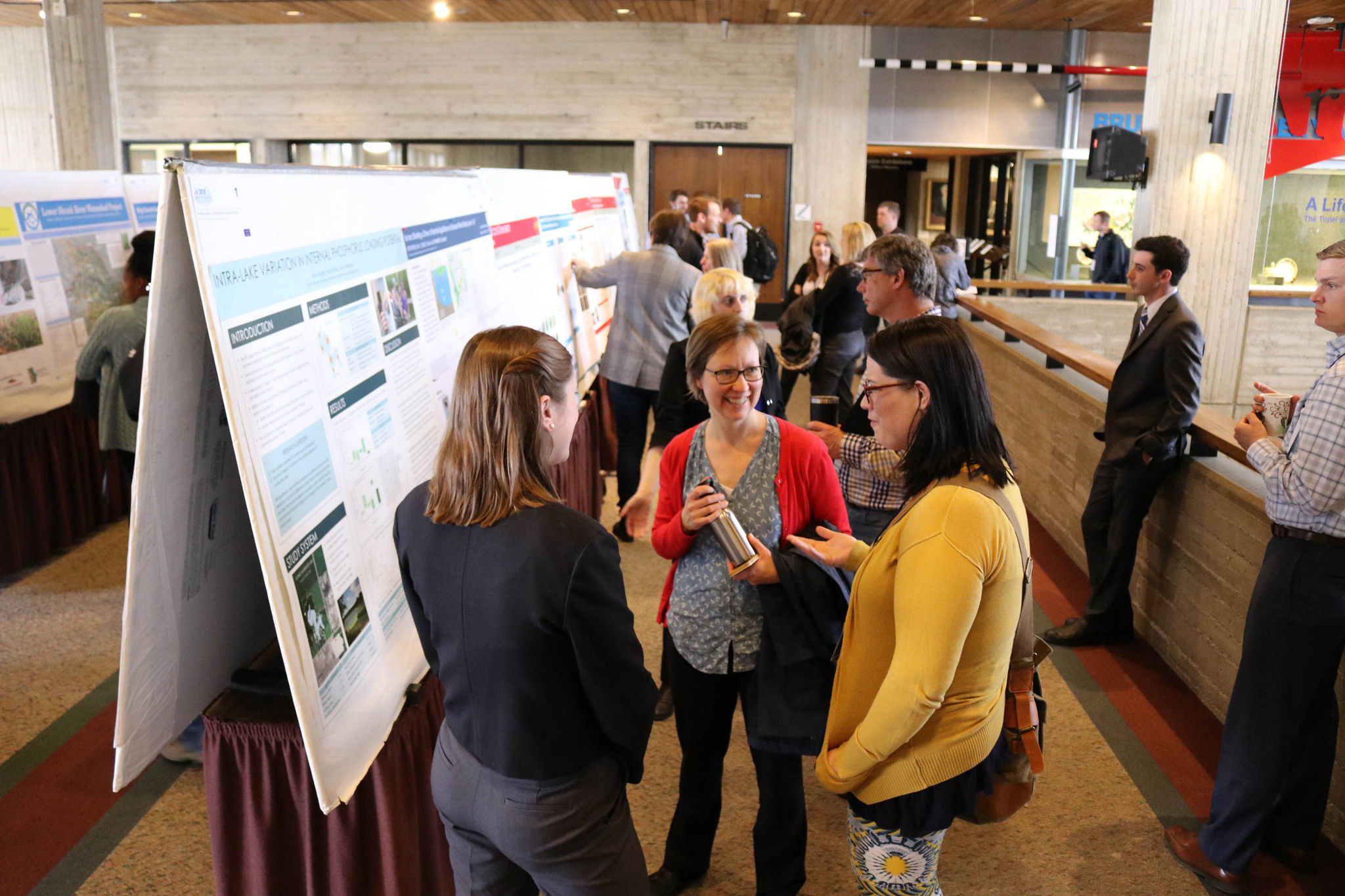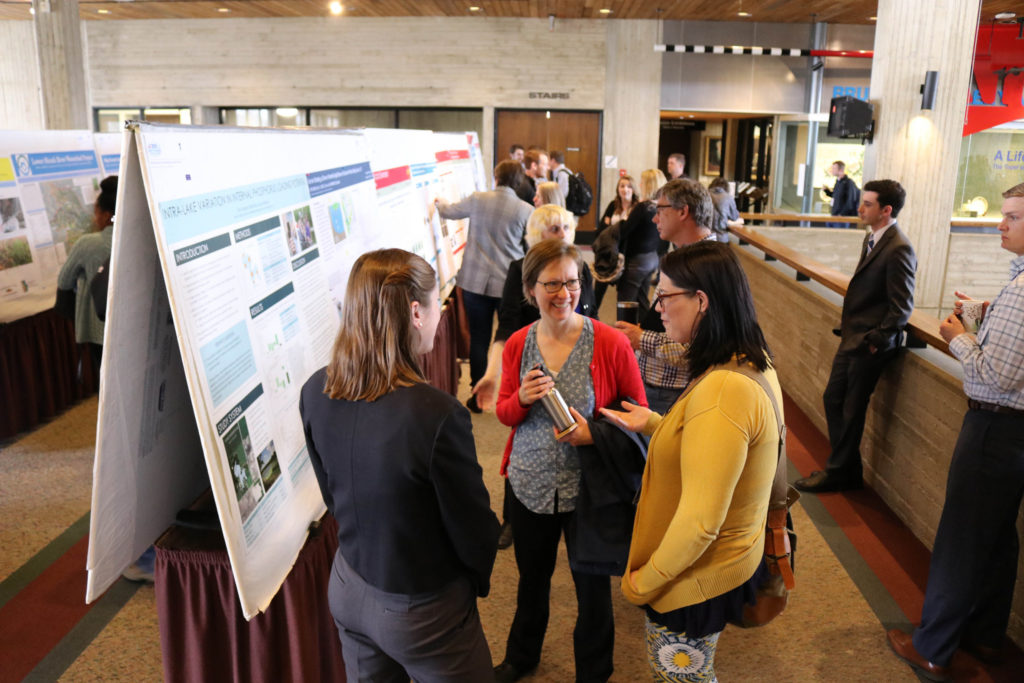
Post written by Tianna Griffin, the Iowa Water Center’s Special Projects Assistant
The Iowa Water Center hosted the annual Iowa Water Conference, in Ames, Iowa on March 21-22. The conference theme was “Our Watershed, Our Community.” The conference had a variety of presenters from different disciplines. One of my favorite presenters was Peter Kageyama, author of “For the Love of Cities” opened the first day of the conference and talked about citizens having an emotional connection to where they live and making one’s city stand out in a creative way. An example he gave was a city hiring an artist to paint murals on sidewalk sewage drainages to encourage its citizens not to dump and pollute in waste water systems.
The conference was attended by professionals in water related careers, including farmers, students, and collegiate professionals. The conference had a photo contest as well as informational posters on student research and watershed projects. There were opportunities for student posters to be entered in a contest for a cash prize. There were over 35 water related posters on display for attendees to view. There were also exhibitors present to learn about their products, services, and to network with. The Water Conference had five sponsors this year who financially supported the conference: Conference Champions Fyra Engineering and Houston Engineering Inc., and Conference Supporters Dave’s Dozing, Shive Hattery, and Wenck.
Some sessions that stood out to me that I attended were “25 years of flooding in Iowa: local perceptions and governance during recovery: A panel discussion,” with panelists: John Soenksen, City of Bettendorf; Paul Assman, City of Denison/Crawford County; Amy Walters, Doris Frese, Steve VanDeWalle and Diana Dunning, City of Chelsea. This panel discussion shed light on flood events that have taken place in Iowa and what the community can do to help mitigate flooding in the future.
In “The Watershed Project: Making learning come to life,” Laura McCreery and her students made up a panel to talk about a grant they received from the Iowa Water Center. The students talked about their projects they did to help improve the Mississippi watershed and what it was like to experience community focused project-based learning. The students first evaluated what they can do to improve the Mississippi River Watershed. They then choose which project they wanted to do. A few projects they could choose from were, rehab the rain gardens at North High School, participate in a waterway cleanup competition, and promote cover crops and stormwater education with farmers. Their teacher talked about how the community-based learning was implemented. This was one of my favorite sessions to attend because, as a college student, I realized that when I was in high school there weren’t classes that were community-based, and I didn’t know what a watershed was. Most students at my high school weren’t concerned with making a difference in the community or learning to work in teams. Attending this session and realizing the importance of knowing about ecology, I have hope that project-based learning will spread to other schools to prepare youth for their careers.
There was a closing story told by Hank Kohler the last day of the conference. The presentation titled, “The Positive and Negative Impact Water has Made on My Life,” outlined Hank’s story, which invoked an emotion to not only be connected to water resources, but to have a passion for life’s journey. He spoke about his experience with water and how it both brought good and bad times into his life. The conference was successful because it honored people who are making a difference in their watershed by presenting awards, it honored students and their research in water related issues, and it brought together professionals in water-related fields and offered sessions that they can take away with them after the conference to be better communicators and to work in teams. I am thankful I was able to attend the conference to learn water-related issues that I didn’t know, meet new people, and to listen to speakers like Hank Kohler who inspired me with my own endeavors.
